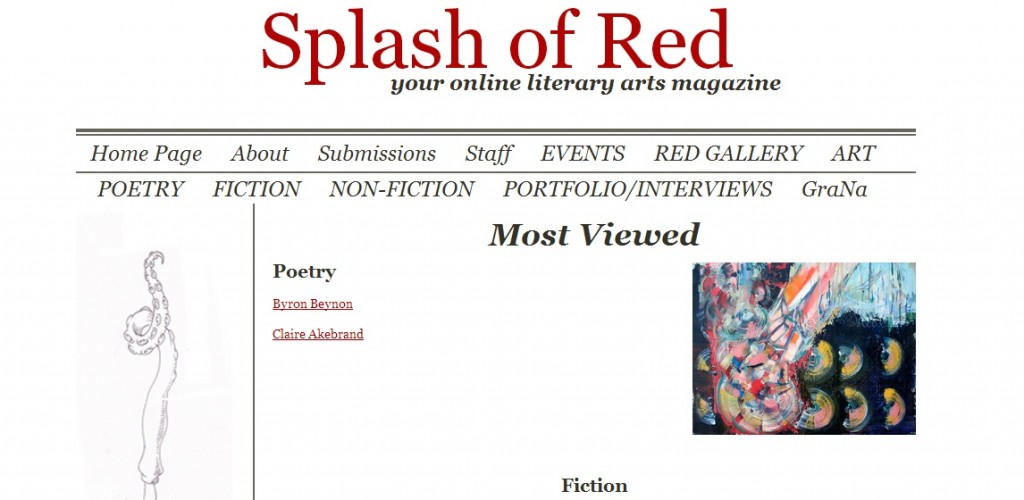
I don’t want you to take this as bragging, because it isn’t. It’s a description of what can happen if you keep on writing decade after decade for the love of the work, with a little bit of luck, that touch we all need, of course.
And I don’t want you to think this is yet another hoarse exhortation to revise, revise!
My first writing workshop instructor, the poet John Ciardi, back at Rutgers in the early 1960s, exhorted me enough for a life time.
Revise, revise!
(He said this in the same intonation that we find at the end of Frost’s wonderfully playful poem on old age, “Provide, Provide”. Yes, you’ve got it—Provide, Provide.)
Revise, revise!
“Writing is revising,” Ciardi reminded us, a wayward band of juniors and seniors, six of us in a workshop he conducted in the basement of the old Rutgers English house, a former residence on College Avenue which the university had taken over decades before.
“Writing is revising.”
I can still hear his voice in this advice, a slightly patrician-ized South End Boston accent that Ciardi must have worked on while one of the few local Italian boys attending Harvard (where he worked as a writer in residence, of sorts, supplying essays of his own devising for lunk-headed legacies who had the patrician voices but not the supreme intelligence about poetry and fiction that should have come along with it. In other words, he worked his way through college writing papers for his betters.)
I can hear that too.
“For my bet-ters.”
By then I had done more than half the work toward becoming something like this new hero of mine, the Southie poet now in residence at Rutgers, living in near-by Metuchen, New Jersey and also writing a weekly column for “The Saturday Review of Literature.” I had lived for nineteen years in North Jersey, where after an empty, and sometimes violent, middle school so-called education, and while keeping up a certain (small) ability at softball and an even smaller one at basketball, I threw myself into the reading of novels and stories that lighted up my present life and glowed forcefully on the horizon as well.
I read sea stories in grade school and science fiction through eighth grade and by sophomore year of high school I was trying to read Faulkner, whose The Sound and the Fury (about which I understood almost nothing but loved the cadences of the lines) our chemistry teacher, a big doughy white-haired man named Pat White, tore from my hands during a study hour and never returned to me.
Something like happened to Ciardi and poetry early on in his working-class life in Boston.
So now all I had to do was write, and these two halves, living and art, might come together and make me a whole person. If you’re reading this you know the feeling. You live through immense sea-storms of language in books so great you barely grasp what’s going on inside them while at the same time plodding along in school, making fun of the feeble teachers who give you Julius Caesar to read or, worse, to listen to on recordings of “great performances.”
My greatest performance until then was to live as though I were a normal kid, even though now and then I would hole up with a science-fiction novel by Robert Heinlein or Isaac Asimov, or Dubliners (confiscated from me by my home room teacher before I could read it half way through). Oh, and also play ball, and commit an occasional small larceny (stealing cases of Coke from a delivery truck), and brawl—verbally, only, thank the gods—with my father, and attend class and sink into a vortex of forceful apathy that convinced me that there was no such thing as education in New Jersey, only place-keeping until such time as you could join the armed forces or get a job as a clerk and then a manager—or, if you were as lucky as I was, assumed like some prince of the lower-middle-classes that college was your due.
College became the intellectual equivalent for revision.
My slovenly class room habits turned more strict, my near-sightedness about life’s possible pleasures turned into long-range vision, and I began, however haphazardly, to regard my origins and my family as something interesting rather than a burden. Revise, revise! Though I hand no idea that I was doing it, I was doing it. Fiction, poetry, music, painting, architecture, dance—all art came together into a single force and wrenched open my eyes, as in the stunning moment at the end of Rilke’s great poem “Archaic Torso of Apollo”.
We cannot know his legendary head
with eyes like ripening fruit. And yet his torso
is still suffused with brilliance from inside,
like a lamp, in which his gaze, now turned to low,
gleams in all its power. Otherwise
the curved breast could not dazzle you so, nor could
a smile run through the placid hips and thighs
to that dark center where procreation flared.
Otherwise this stone would seem defaced
beneath the translucent cascade of the shoulders
and would not glisten like a wild beast’s fur:
would not, from all the borders of itself,
burst like a star: for here there is no place
that does not see you. You must change your life.
Years went by, nearly twenty, before I found a toe-hold on the climb up the rocky mount of revision, but the more I worked at it, the more natural it became. The sense of where you must begin a story rather than where you have first begun it. The sense of where you must expand a novel—open it up to further exploration—rather than where it now stands. The necessity to write more and more scenes to make a character’s psychology become more than mere statement. The numerous attempts to make the raw beautiful rather than pretty, and take the beautiful closer to the sublime.
To say this eventually comes to us naturally may cover over the fact that as natural as it seems it never comes easily. When I edited a collection of Bernard Malamud’s essays along with my dear old friend and fellow novelist and story writer Nicholas Delbanco I discovered Malamud’s painstaking method for making the natural seem a common occurrence. Here’s how he worked on a short story. You can draw inferences from his about how he approached novels.
First he wrote a draft in long hand and then typed it over and made corrections in the typescript. Then he wrote a second draft in long hand and typed it up to make corrections that comprised another draft. And so on, sometimes up to a dozen times, to make a finished story. In the page proofs for a magazine version of the story he made corrections with a pen. When he had enough stories for a collection he made further corrections in the galley proofs, and then again in the page proofs. When he had a finished book on hand, it was never finished. When he read a story in public he made further changes as he went along in the reading of it.
Ciardi and Malamud—not a one-two punch, more like a one-one thousand punch to help me to see how to make art better and better.
As I write these words I have just about completed one of the most fortunate endeavors a novelist can undertake. A new publisher has come along to bring out a new edition—this would be the fourth!—of a novel I wrote thirty years ago and published almost that long ago. Back then I called it The Grandmothers’ Club and this remained its title through its first three iterations, its original hard cover, and then two paperback editions. At the urging of this publisher—Frederic Price of Fig Tree Books–I took the time to revise it after all these many decades, and recast the punctuation, particularly the quotation marks. When I first wrote it I was in the throes of modernism, as if caught up in a fever that had a fever, something that’s cooled down a bit for me by now, to, say, a steady boil with now and flares of flame like sunspots. The book changed enough so that we changed its title. Now called Prayers for the Living it comes out in a new trade paperback edition in March.
Revise, revise! Have I changed my life? I don’t know, I don’t know. Have I changed my art? I invite you to come and see.

